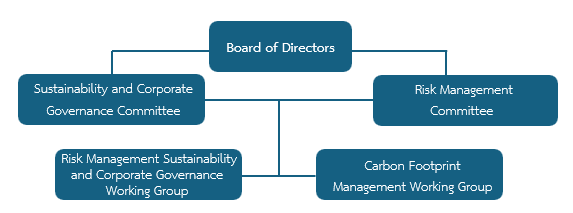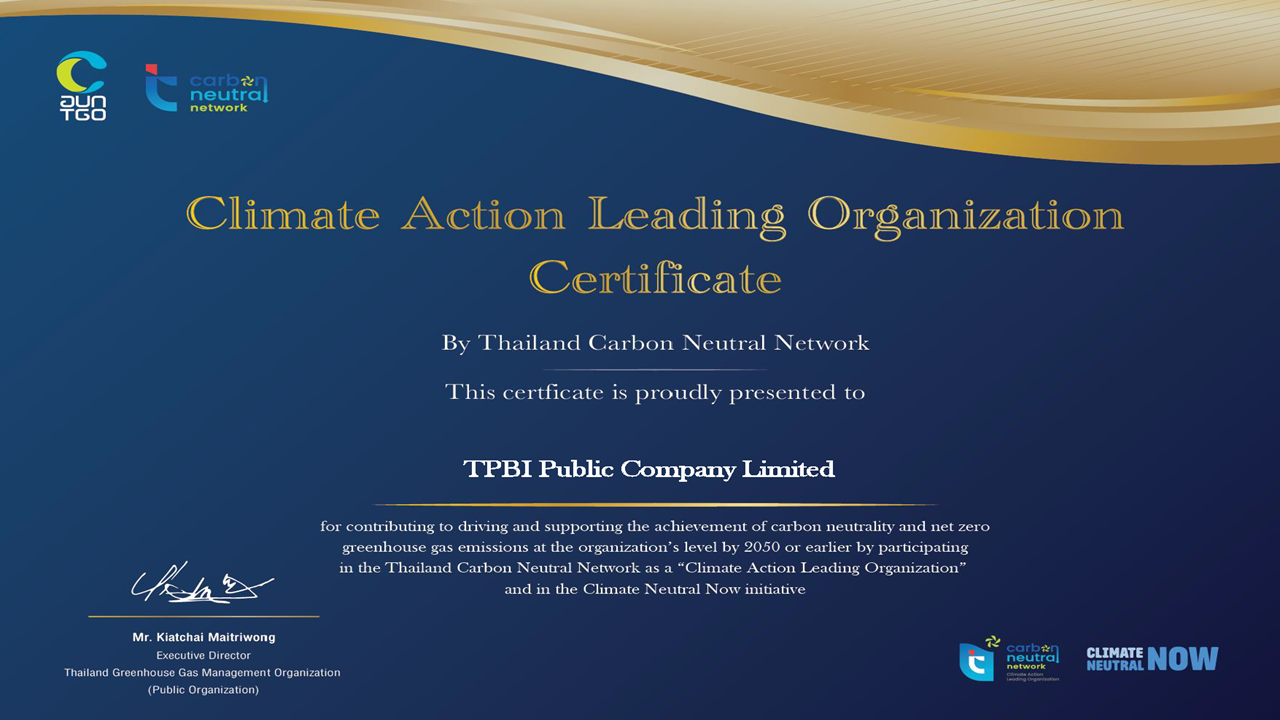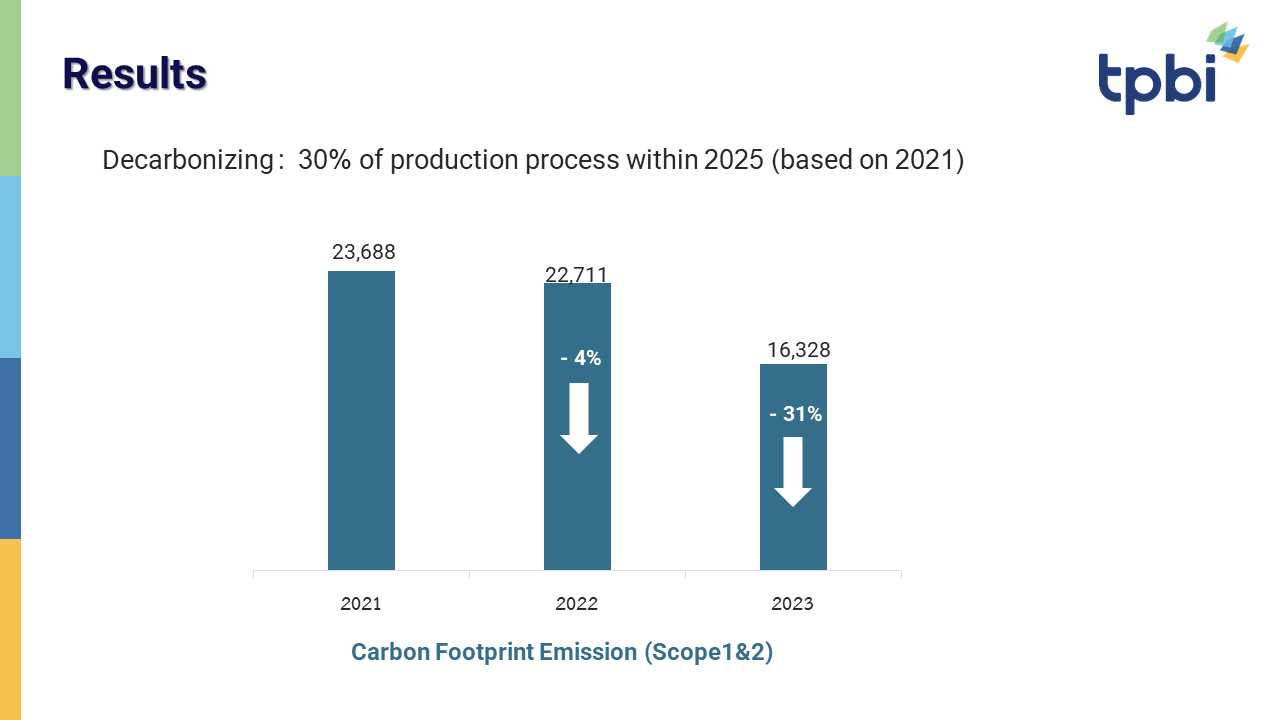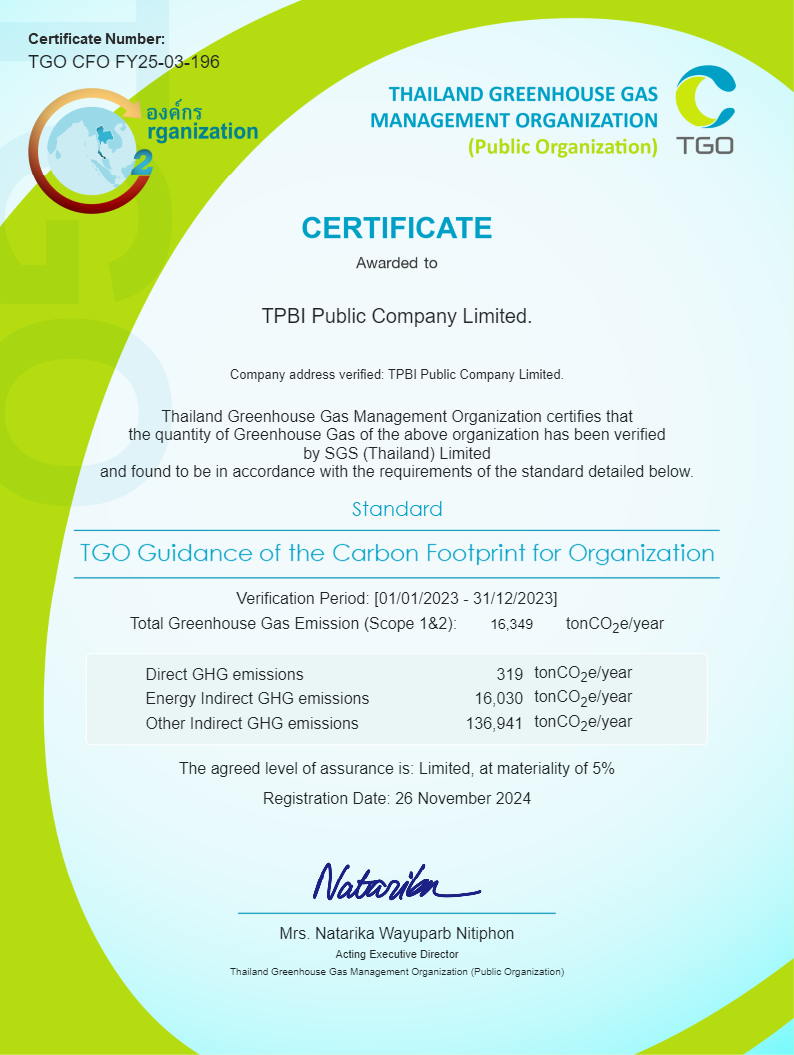
Climate Change Managemen
Climate Change Management Policy
Our company recognizes the importance of managing and reducing greenhouse gas emissions to help address climate change. We are committed to supporting and promoting effective greenhouse gas management for the benefit of the company, society, and the environment, ultimately transitioning toward a low-carbon society in alignment with international environmental agreements on climate change.
Climate Change Management Governance Structure

Our board of directors and executives are dedicated to reducing greenhouse gas emissions, which are a primary cause of climate change. We have established climate change management strategies that align with the United Nations Sustainable Development Goals (SDGs) and international standards as follows:
- Data Collection and Emission Calculation: We collect data and calculate the equivalent carbon dioxide emissions from various organizational activities. This serves as a database for improving operational efficiency and setting corporate greenhouse gas reduction targets.
- Risk and Opportunity Assessment: We assess climate change-related risks and opportunities, integrating them into our corporate risk assessments to prepare for and mitigate the impacts of climate change on our business.
- Machinery and Energy Efficiency Improvement: We enhance machinery efficiency and increase the proportion of renewable energy usage to reduce both direct and indirect greenhouse gas emissions.
- Environmental Conservation and Awareness Promotion: We support environmental conservation initiatives and raise awareness among employees and communities about climate change mitigation. This includes energy-saving activities and educational programs on proper waste segregation and disposal through the "Won" project.
- Emission Disclosure: We disclose greenhouse gas emissions data to stakeholders in accordance with relevant guidelines and standards, such as Form 56-1 One Report and the Global Reporting Initiative (GRI).
 |
 |
 |
 |
 |
|
Our company aims to reduce carbon dioxide emissions from production processes by 30% by 2025, based on a 2020 baseline. We are committed to continuously improving our business processes to achieve greenhouse gas reduction goals while integrating both national and international standards into our organization, processes, and products, including the ISO 14001 Environmental Management System Standard.
In 2024, the company implemented the following greenhouse gas management initiatives:
- Establishing Environmental Policies and Emission Reduction Targets: Defined policies and goals to reduce greenhouse gas emissions.
- Identifying and Analyzing Emission Sources: Assessed greenhouse gas emissions across the business value chain and developed innovative solutions to minimize emissions.
- Utilizing Renewable Energy: Integrated renewable energy sources into production processes.
- Improving Energy Efficiency: Enhanced electrical appliances' efficiency, such as replacing air conditioning systems with solar-powered units and switching to energy-saving LED lighting.
- Promoting Behavioral Change and Eco-Friendly Initiatives: Launched office-wide energy conservation programs and eco-friendly initiatives, including waste reduction through the principles of Reduce, Reuse, and Recycle, phasing out hazardous chemicals, and supporting Green Procurement practices for environmentally friendly products and services.
- Recognition for Leadership in Climate Action: The company received the Climate Action Leading Organization (CALO) – Excellence Level award from the Thailand Carbon Neutral Network (TCNN) for its outstanding greenhouse gas management efforts. (https://www.tpbigroup.com/news/blog/739-tpbi-receives-outstanding-climate-action-leading-organization-trophy-2024)
 |
 |
 |
|




